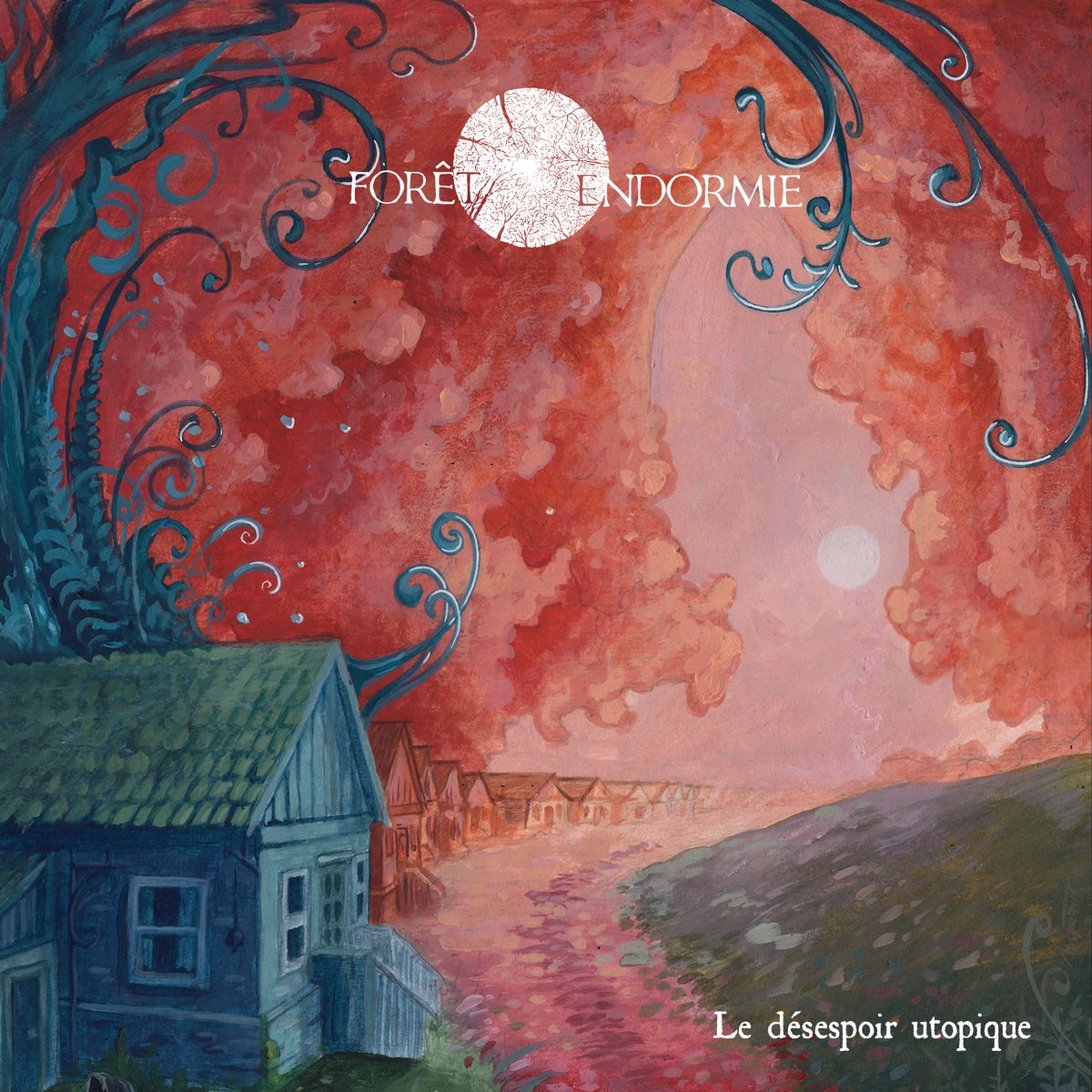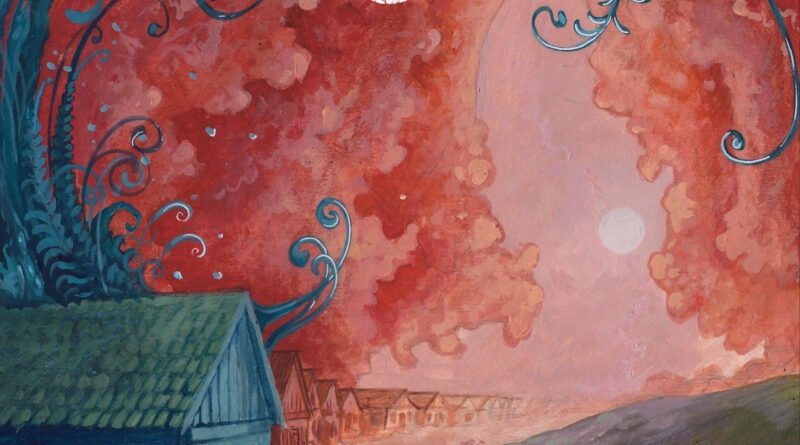ALBUM REVIEW: Le Désespoir Utopique – Forêt Endormie
Just as developments in technology have made recording an album easier than ever, so too have they coincided with a fascination with music inspired by sounds from centuries ago. Ensembles like HEILING and SKÁLD, among many others, have honed in on a desire from listeners to reconnect with something more human than processed beats on Ableton, amassing devoted fanbases who find their work transportive and transcendental. Often these acts are seen as black metal-adjacent, which tracks in the case of Maine’s FORÊT ENDORMIE, formed by Jordan Guerette, who plays guitar for the comparatively noisier FALLS OF RAUROS.
This chamber ensemble draws influence from classical, folk, post-rock and avant-garde music, stripping away modern sheens to get to the heart of something more primal. In the case of Le Désespoir Utopique, it is the movement of people and the privileges associated with such a thing. Those who long to go but can’t; those forced to relocate but who wish to remain. It is particularly pertinent at a time the world is watching in horror as Palestinians lose their homes and their families, although Guerette says the album is not a commentary on specific historical or current events. But if it were, it is appropriately melancholic, each track imbued with a sense of spiritual longing for a destination of sorts. This bittersweet feeling is reflected in its translated title, ‘Utopian Despair’, encapsulating a record that balances sorrow with a comforting knowledge that home – however one interprets the meaning of such – exists somewhere.
So when Tressé Dans La Terre ends with a lone organ, it can be heard in countless ways. Like the embracing arms of a church, filled with hope and familiar faces. Like a lament, in memory of what one once had and is now without. Guerette, who sings in French, similarly holds paradoxical moods, able to sound mournful and benevolent at the same time. His voice is lullaby gentle, it cracks with delicacy, and it is up to the listener to interpret these vulnerabilities.
The music across the record is in conversation with itself too, as Tressé Dans La Terre’s motif reappears in La Marée Monte, this time faster, more suited to a campfire than a procession. Then halfway through, a shift happens. Une Décision Sera Prise introduces jazzy guitar over trip-hop beats, all without losing the neoclassical elements as violins weave themselves round these new textures. It is reminiscent of SUFJAN STEVENS’ Age Of Adz, which similarly combined his trademark softness with everything-and-the-kitchen-sink experimentation. Tracks on Le Désespoir Utopique’s second half are longer and more florid, like the change between classical and romantic eras. La Chaleur Était Rare has the languid pace of a post-rock piece, allowing the ensemble to draw out longer and increasingly emotional notes, and it’s in the album’s back end where the instrumentation really begins to soar. Gurette has expressed admiration for Joanna Newsom, which is especially evident in the shapeshifting Aucun Risque, Aucune Douleur, Aucun Lien, with its kinetic and multi-layered performances. The record’s palette increases in size with each track, its cinema screen widening.
Its climax is not an explosion of sound but the development of it, as if learning and becoming fluent in a language along the journey. It reveals itself on multiple listens, how it subtly blooms from something contemplative to something far more bold and expressive. Le Désespoir Utopique is an exquisite piece of work, one that rewards paying attention to its intricacies, and one that sends echoes down through the centuries of humanity’s movement, displacement, and longing for home.
Rating: 8/10

Le Désespoir Utopique is set for release on November 24th via Fiadh Productions.
Like FORÊT ENDORMIE on Facebook.

